Submitted by Alicia Bennett, Public Affairs Officer, U. S. Forest Service Job Corps
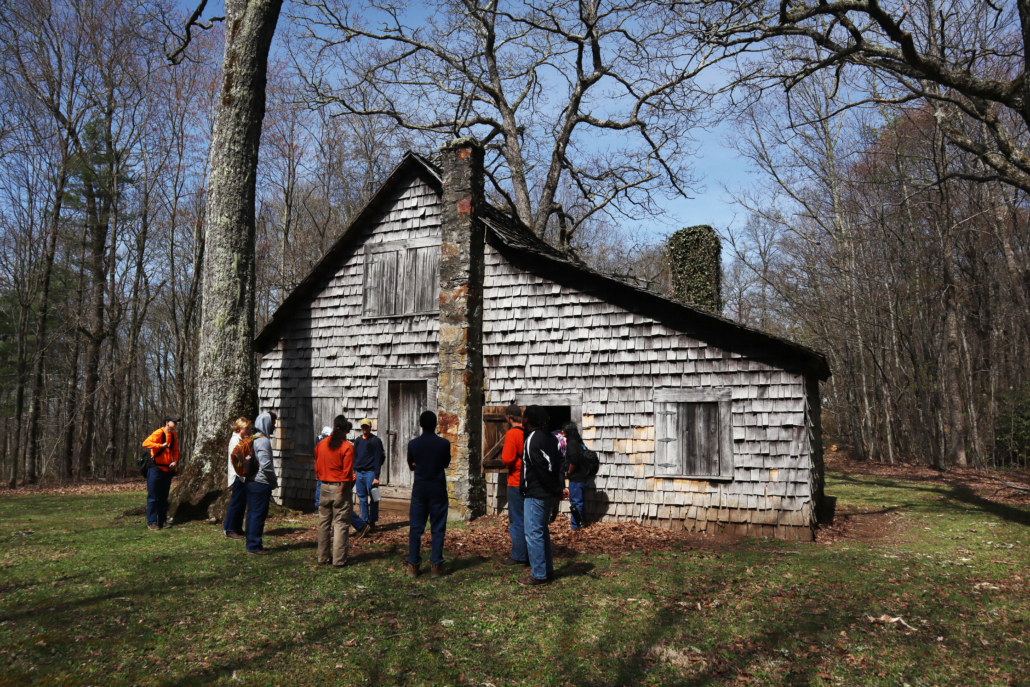
Oconaluftee Job Corps Civilian Conservation Center Advanced Forestry students visit the Wilson Lick Ranger Station, one of the first ranger stations built on the Nantahala National Forest on April 18, 2023. USDA Forest Service photo by Tavaris Evans.
Oconaluftee Job Corps Civilian Conservation Center (CCC) Advanced Forestry Instructor Tavaris Evans had a wonderful childhood growing up in Miami, Florida—maybe too much fun. After entering high school, the grades he brought home to show his parents were underwhelming. Naively, he believed that enrolling in an alternative high school would be the magic solution to help him earn his high school diploma. It did—until he stopped showing up for class.
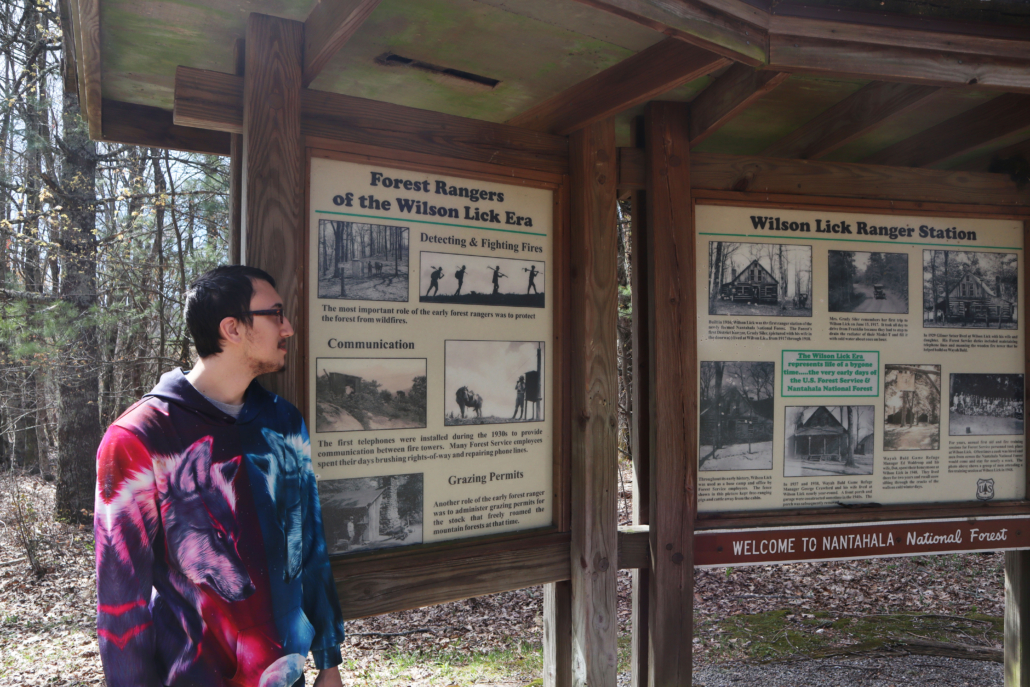
Oconaluftee Job Corps Civilian Conservation Center Advanced Forestry student Alexander Maillard reads interpretive signage at the Wilson Lick Ranger Station on the Nantahala National Forest on April 18, 2023. USDA Forest Service photo by Tavaris Evans.
Dropping out of school did not sit well with his parents. They instructed Evans that if he was not enrolled in school he had to get a job. Surveying his options, Evans discovered that his career prospects included working at warehouse, driving a truck or joining the military, none of which he found attractive. Ultimately, he did find employment at a warehouse and enrolled in a vocational school with the goal of earning his GED. But, between long work shifts and a commute he dreaded, Evans became discouraged and he dropped out of school yet again.

Oconaluftee Job Corps Civilian Conservation Center Advanced Forestry student Montel Filmore at the Wayah Bald Fire Tower on April 18, 2023. USDA Forest Service photo by Tavaris Evans.
In 2005, while working at the warehouse, Evans would pass the Miami Job Corps Center on his route home. He was intrigued enough to see what it had to offer, applied, and was quickly accepted. By November 2006 he had earned his certification in business administration but not earn a GED. Evans went back to working at the warehouse. After a year he realized two things–he had to dedicate himself full-time to his education and it had to be in a new location outside the state of Florida. After experiencing what Job Corps had to offer, he decided that it would provide him the best opportunity for success and enrolled in Lyndon B. Johnson Job Corps CCC.
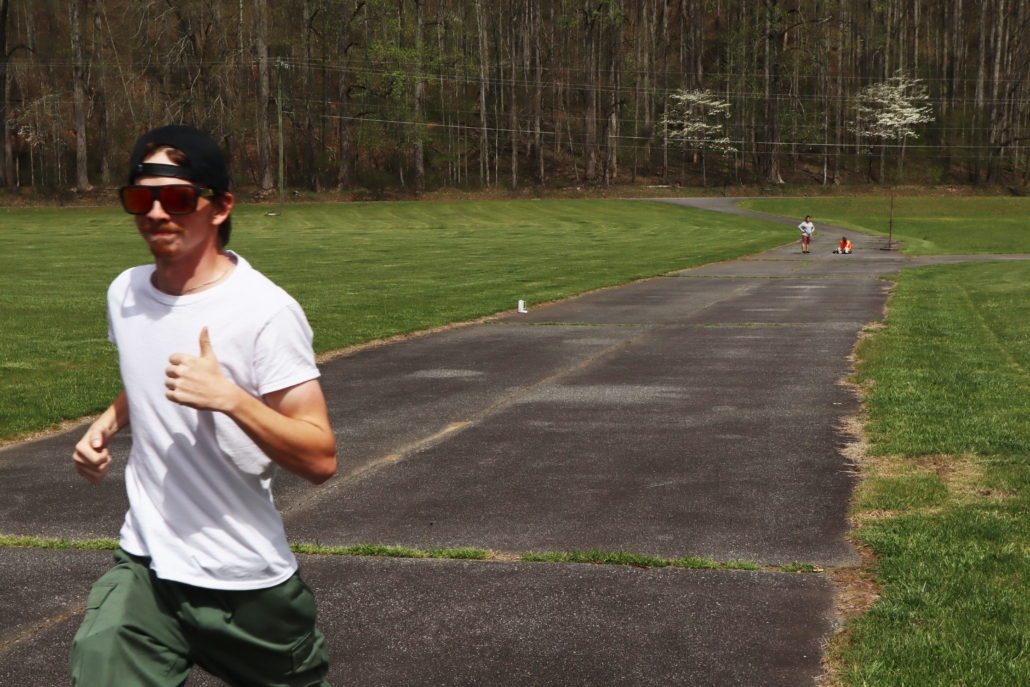
Oconaluftee Job Corps Civilian Conservation Center Advanced Forestry student Jacob Coleman participates in physical training on April 14, 2023. USDA Forest Service photo by Tavaris Evans.
Attending a Forest Service Job Corps center sparked Evan’s interest in wildland firefighting, leading him to enroll in the Advanced Wildland Fire Management Program at Schenck Job Corps. He completed his training September 2008. The extensive work experience Evans received at Schenck provided him with the skills he needed to advance to the next stage of his career. “Job Corps provided me with hands-on experience in wildland fire that was desirable for entry level placement with the Forest Service,” said Evans. “I learned a trade, got my GED and got paid for it. I made good friends and had great instructors. I am thankful for the Job Corps program—it changed the trajectory of a high school dropout.”
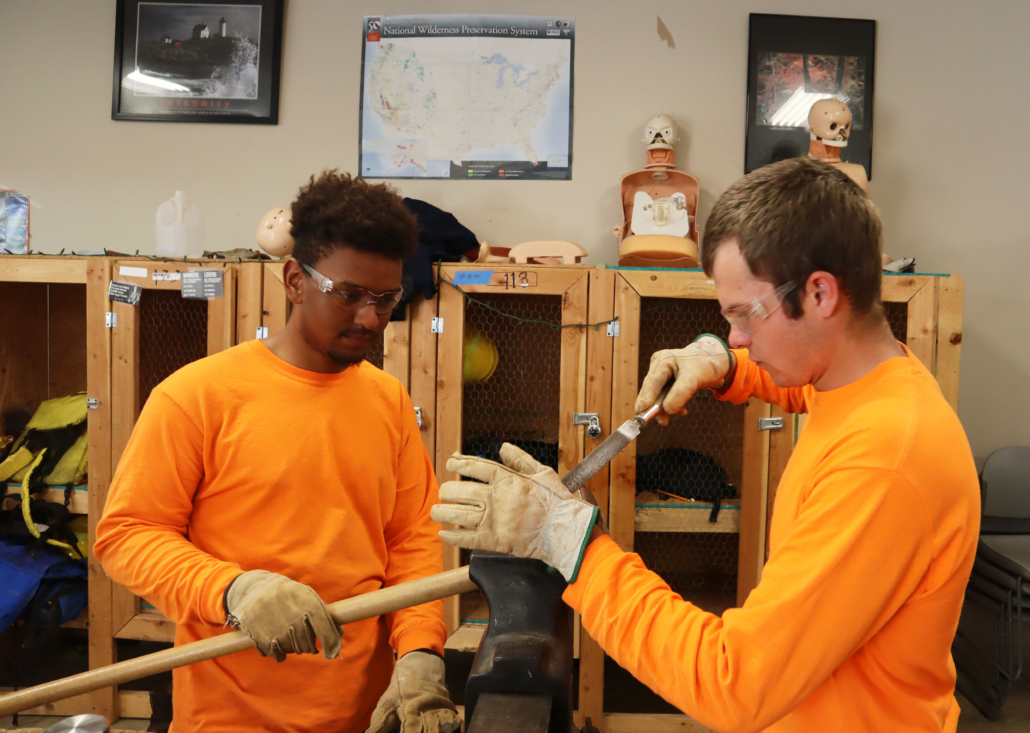
(l-r) Oconaluftee Job Corps Civilian Conservation Center Advanced Forestry students Dereck McEachin and Luke Schwartz sharpen hand tools on April 20, 2023. USDA Forest Service photo by Tavaris Evans.
Evans went on to work as a firefighter on the Hoosier National Forest for six years. He then moved on to the Cibola National Forest to work as an Assistant Engine Captain for eight years. Evans stumbled upon an outreach for an instructor for Oconaluftee Job Corps’ revamped Advanced Forestry Program and now he has come full circle. “I thought this is probably a good opportunity and I applied and here I am,” shared Evans.
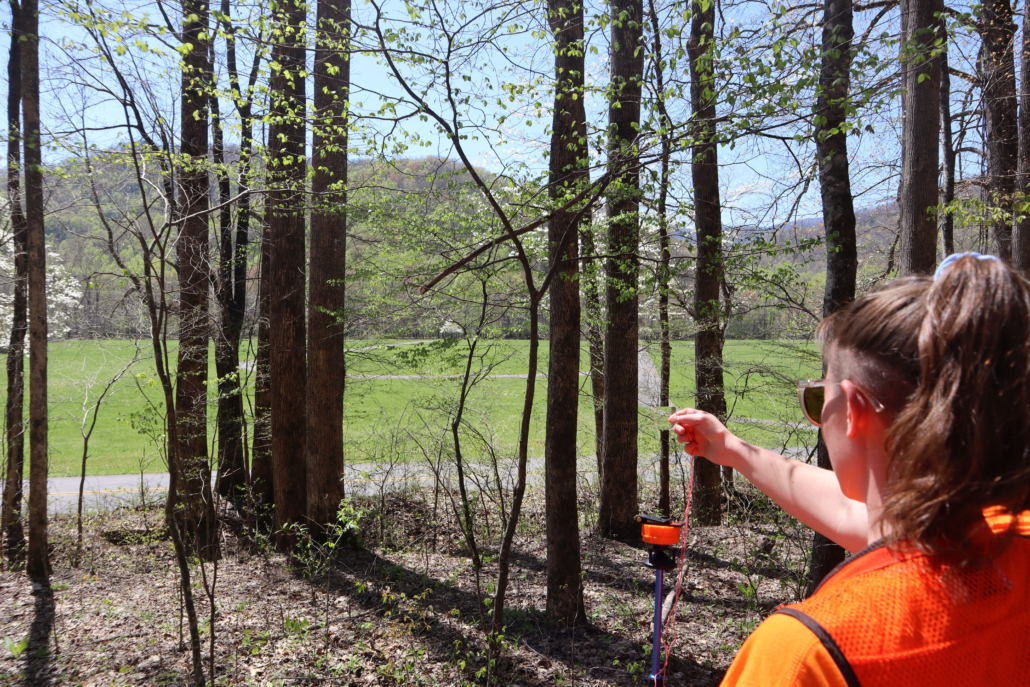
Oconaluftee Job Corps Civilian Conservation Center Advanced Forestry student Hannah Greene uses a prism to tally trees in a plot for cruising timber on April 11, 2023. USDA Forest Service photo by Tavaris Evans.
As the new Advanced Forestry instructor, Evans studied the standardized Advanced Forestry Training and Achievement Record (TAR) to expand upon and develop his own lesson plans and curriculum. “I looked through the TAR and asked myself, ‘OK, how does this look?, ’” he stated. However, immediately after his arrival, Oconlaluftee lost its forestry instructor. Evans was asked to backfill the position which required mastering its own specific TAR. “I had full class of about 15 students and I had to hit the ground running,” he said. “Before you know it I was taking students here, taking students there—I went out West and took students out to California and Nevada.” By the time Evans was able to return full-time to his permanent role, he had two Advanced Forestry students waiting. “I had to build the plane while it was in the air with students already onboard.”
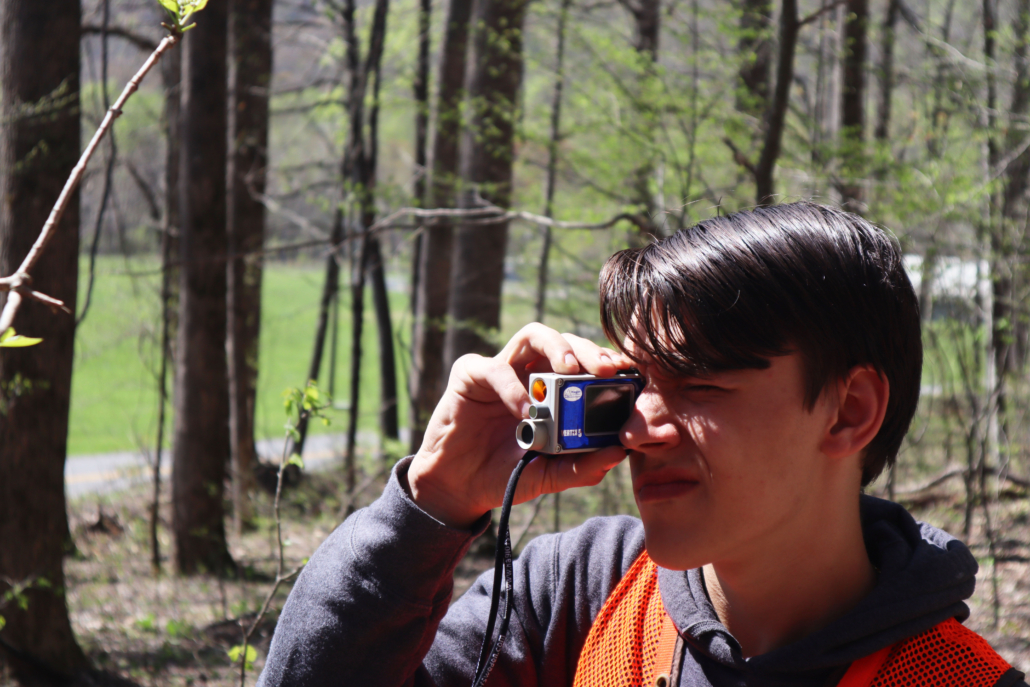
Oconaluftee Job Corps Civilian Conservation Center Advanced Forestry student uses a vertex hypsometer to measure tree height on April 11, 2023. USDA Forest Service photo by Tavaris Evans.
The Advanced Forest program has a maximum enrollment of 10 students and takes six to seven months to complete. Students are trained on the basics of timber marking/timber cruising, trails, recreation and maintenance. They spend 16 weeks working on a national forest to gain experience in the field and learn how the U.S. Forest Service conducts business to serve the American public. Students who successfully complete the program earn a Public Land Corps certificate, giving them a special hiring status for future employment with the agency.
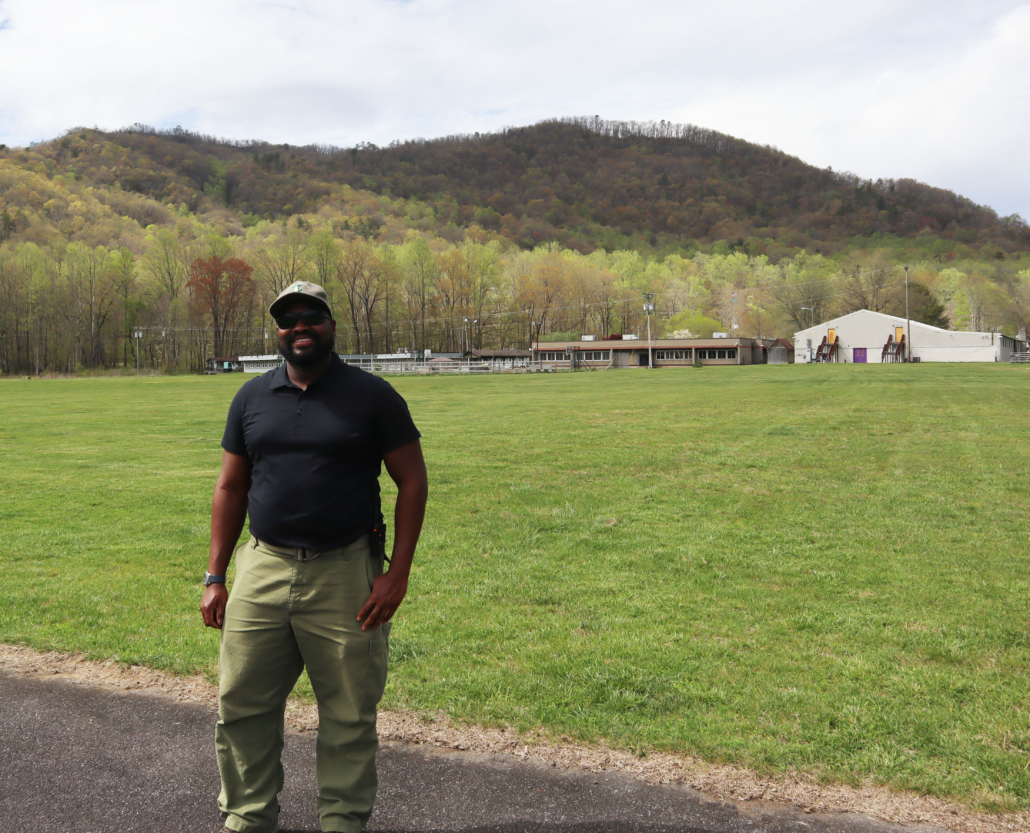
Oconaluftee Job Corps Civilian Conservation Center Advanced Forestry instructor Tavaris Evans. Self-timed photo courtesy of Tavaris Evans.
Evans continually beats the ground to find instructors to speak and train his students. “As I’m building the program, I’m reaching out to resources to ask them if they are available or if they have a project the students can work–on the national park, forest districts, with the Bureau of Indian Affairs or the state. “I want to get the students quality experience and enhance the program.”
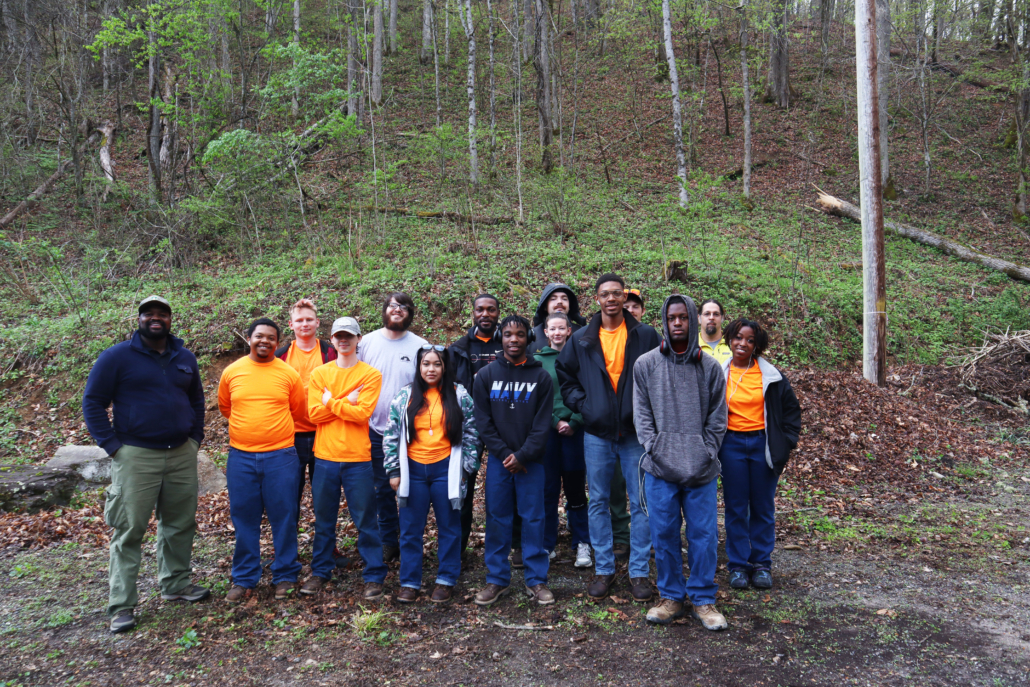
Oconaluftee Job Corps Civilian Conservation Center Advanced Forestry inaugural class on April 13, 2023. USDA Forest Service photo by Tavaris Evans.
Evan’s end-goal as an instructor is to ensure that every student in his program has the skills needed to pursue entry-level jobs in areas such as timber, firefighting, recreation or forestry. “I take them as they come,” he says. “Some know what they want to do and others are unsure and still trying to figure out it out. I put them on a path to get them to their end goal—which may require them getting more advanced training. The whole idea is to train the students and making a student employable.”
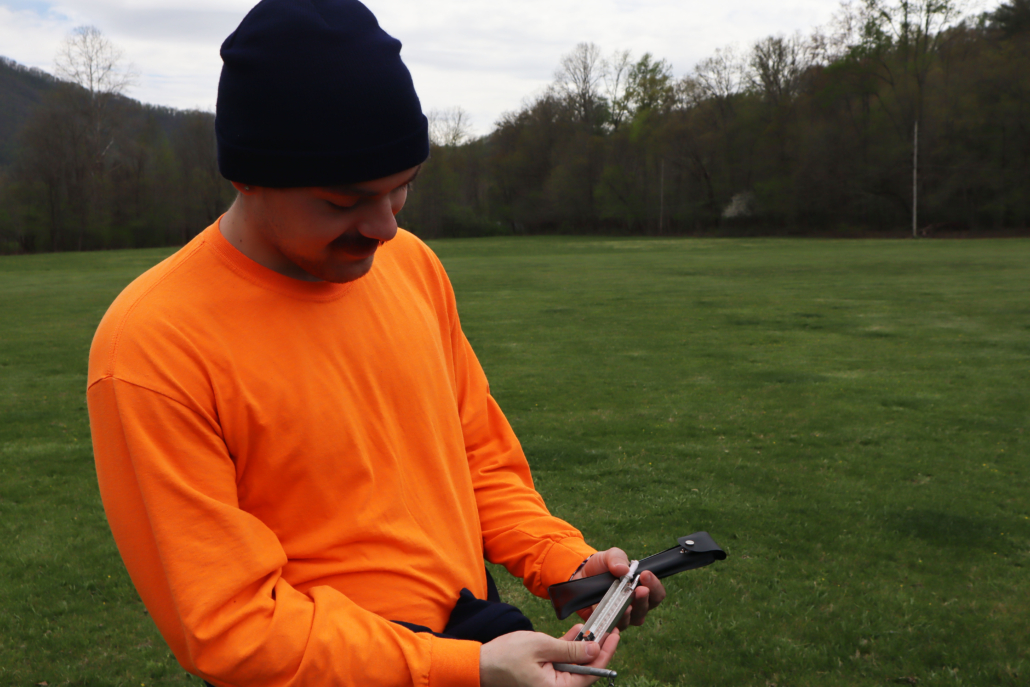
Oconaluftee Job Corps Civilian Conservation Center Advanced Forestry student Thomas Paine uses a sling psychrometer to measure the weather temperature and relative humidity on April 13, 2023. USDA Forest Service photo by Tavaris Evans.
As for where he is headed in his career, Evans does not seem to have given it much though. But the one thing he is sure of is that he wants to excel. “Whatever position I land in my career; my goal is to be great at it.”
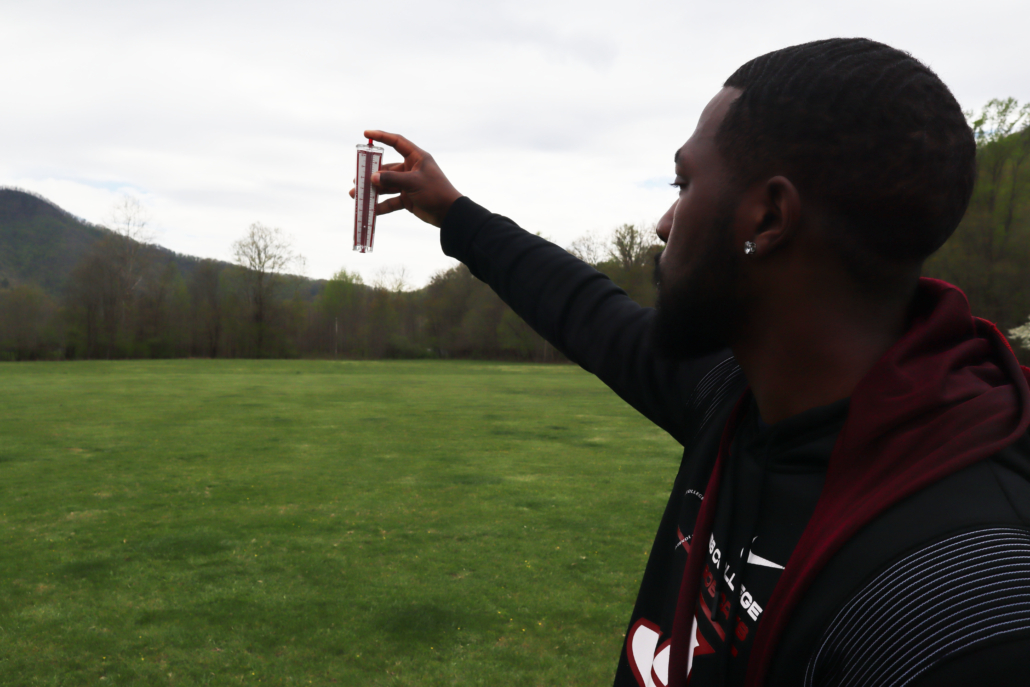
Oconaluftee Job Corps Civilian Conservation Center Advanced Forestry student Levino Sims uses a wind meter to measure wind speed on April 13, 2023. USDA Forest Service photo by Tavaris Evans.





































































